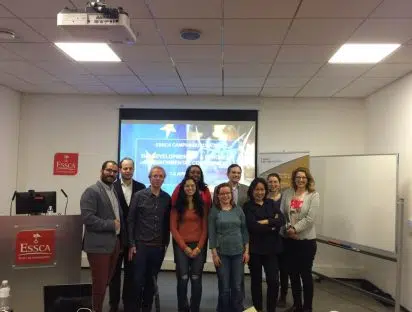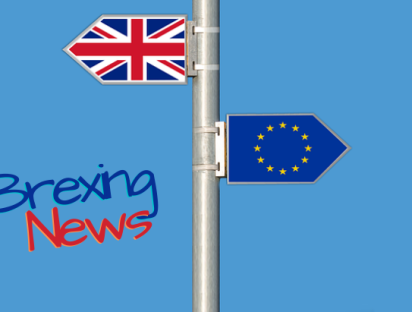
Ioana Kraft
On Thursday, 7 September 2017, ESSCA School of Management and China Crossroads welcomed Ioana KRAFT, General Manager of the Shanghai Chapter of the European Union Chamber of Commerce in China, to talk about results from the European Chamber’s 2017 Business Confidence Survey.
The European Chamber’s Business Confidence Survey 2017 is based on input of over 500 senior representatives of member companies and provides an annual overview of their performance and outlook from within the Chinese market. It thus serves as a year-to-year gauge of the climate for foreign business operators in China.
According to Ms Kraft, the key findings of this report show that the difficulties for European business remain unique to China, and careful management is needed to ensure future profit and growth. The survey also highlighted a persisting uncertainty with regards to the regulatory environment. This is due to discrepancy in implementation of regulations across regions and lack of transparency. European businesses also emphasized a perceived difference between State-owned enterprises, private enterprises and foreign enterprises when it comes to compliance.

An interested multinational audience follows Ioana Kraft’s analysis of the business confidence survey findings.
While China gears towards improving the environment for foreign businesses and investment and remains committed to free trade and openness, the results of the survey reveal that respondents do not quite believe that regulatory barriers will decrease in the short term. Hence, further significant loss of revenues is likely to occur for European companies in China.
On the positive side, information and communications technology, automotive, machinery, cosmetics, environmental and retail firms all saw growth in revenues. Moreover, Ioana KRAFT pointed out that sectors such as travel, aerospace, education, pharmaceuticals and engineering reported very positive increases in profits that ranged from 70% to 100%.
The EU-China Comprehensive Agreement on Investment (CAI) must be completed to give European businesses the confidence they need to ramp up investment in China. European companies want the CAI to facilitate a simplified regulatory environment, freedom to enter into new business areas or product segments, a reduction of barriers to making acquisitions in China, and more leeway to take control of their China operations by reducing the need for local business partners and joint venture requirements. Ioana KRAFT argued that the CAI could lead to a better investment climate with more reciprocity.
The event was attended by an audience of over 80 participants. Given the current political tension on economic matters between the newly elected US administration and China, it came as no surprise that American participants were particularly interested in the discussion.
Reported by Oleksandra Zavertailo, assistant to the ESSCA Shanghai Programme Director.




